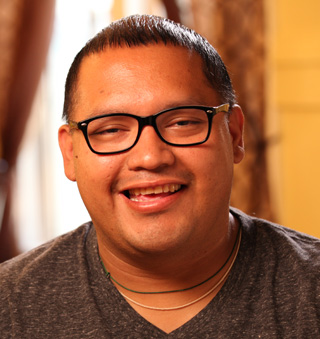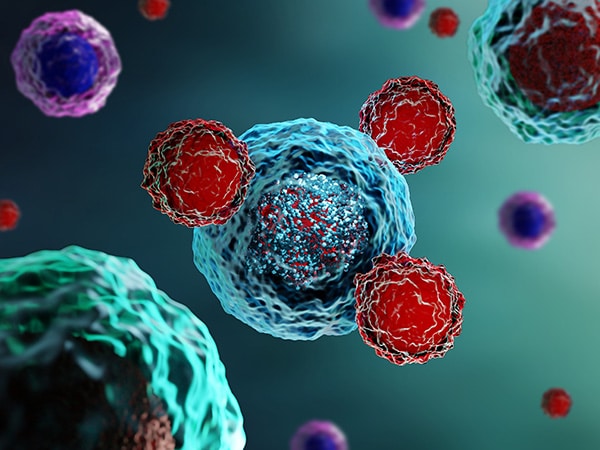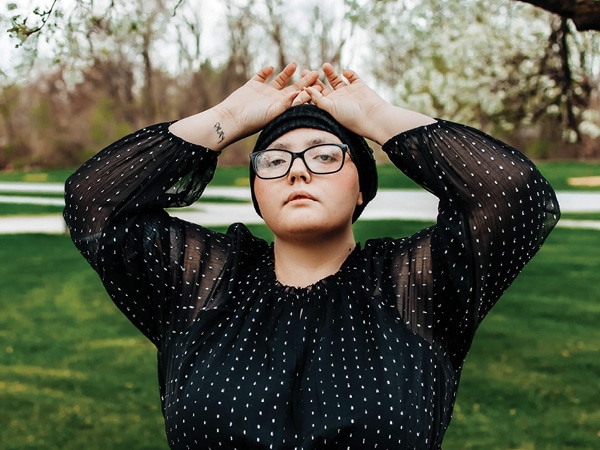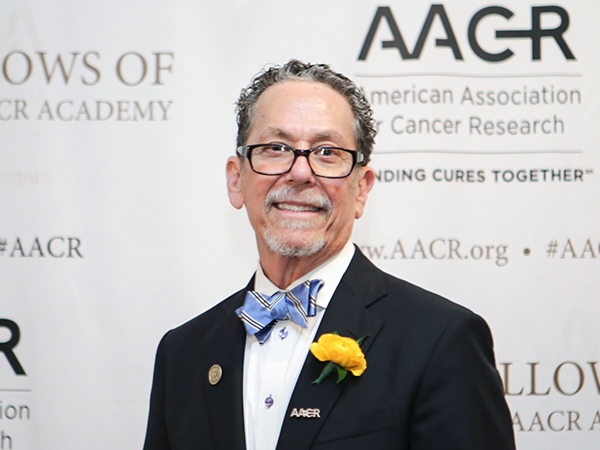Sergio Ramirez: Challenging the Odds of Recurrent Leukemia
When Sergio Ramirez’s acute lymphoblastic leukemia recurred, he turned to an investigational immunotherapy to defy his poor prognosis.
For Sergio Ramirez, his 27th birthday was supposed to be a celebration with his family – his three young boys and his wife. The family took him to brunch, then they went to the park to play football with the kids.
“As soon as I started going for the ball, my head started spinning,” Sergio recalled. “I had to gather myself and I remember thinking ‘this is not normal. I have got to go to the doctor.'”
The next day Sergio went to his physician and told him about his symptoms. He mentioned that everyone had been telling him he looked pale since he returned from a family vacation to Central America. The doctor agreed, telling Sergio that he looked as white as a piece of paper. A blood test revealed that his hemoglobin was extremely low.
“That’s when everything started,” he explained.
Sergio was diagnosed with acute lymphoblastic leukemia (ALL), an aggressive form of cancer in which the bone marrow makes too many of a type of white blood cell called lymphocytes.
“My initial reaction was that it was terrifying,” Sergio said. “I was thinking of my kids, my family, and that this illness – cancer, that’s the only thing I heard – would lead to one road, which was death. It was just too much to grasp in a short amount of time. Just going from being healthy and now they’re telling me about cancer is just something that is indescribable.”
With his diagnosis, everything changed for Sergio, who loved his job as a semi driver, which took him all over California. He loved playing outside with his three sons.
“When I was diagnosed the treatment started immediately,” he said. “They already had a plan for me, which was a three-year plan, and the first year was very, very intensive where I practically lived in the hospital.”
After that year of intensive chemotherapy, Sergio went into two years of so-called maintenance therapy, which involved a less-aggressive ongoing chemotherapy regimen and frequent monitoring.
Sergio’s cancer went into remission. Unfortunately, the remission didn’t last long; after six months the ALL came back and was more aggressive than the first time. Sergio was immediately started on a powerful chemotherapy regimen, but a bone marrow biopsy a month later showed that the treatment had been largely ineffective against the cancer.

At this point, Sergio’s prognosis was poor and his physician explained that his best chance was participating in a clinical trial testing blinatumomab, a cancer immunotherapy agent intended to help the patients’ own immune system recognize and destroy malignant cells.
To participate in the trial, Sergio had to leave the hospital and care team he’d been with for more than three and a half years and go to City of Hope, a National Cancer Institute-designated comprehensive cancer center.
“When I went to City of Hope I was terrified,” Sergio said. “It’s a huge hospital – basically a little city, but everyone there did an amazing job.”
He imagined that as part of a clinical trial he’d be one of thousands to get the new drug, but he soon learned he would be just the 104th person to receive blinatumomab. That was intimidating as well.
The trial lasted only 30 days, with his first two weeks of treatment as an inpatient and the remaining time at home where he could spend time with his family again. A bone marrow biopsy was then performed to check on Sergio’s progress.
“It took a week to get the results and I was really anxious. I couldn’t sleep. I felt that it was my last chance to survive,” he said. “But as soon as I saw the doctor, I knew the results were good because he had a big smile on his face. Learning that there was no sign of leukemia was one of the happiest days of my life.”
Sergio got 30 additional days of blinatumomab and then the focus turned to a stem cell transplant. Three potential donors were identified, and Sergio did not have to wait long for the procedure. The transplant was tough, including 42 days in the hospital, but his family was able to stay by his side through the process.
While he continues to recover from the transplant, Sergio is cancer free. The experience has changed him, he said:
I learned a lot through cancer. It changed my whole life. I learned how to live my life, love life, and appreciate the small things that life has to offer. I appreciate just waking up every morning seeing my kids, hugging my kids, playing sports with my kids. There is just a wonderful feeling that I get every time I do it and I couldn’t be happier for all the results, for all the great people that I have met; it’s just been an amazing, amazing experience.
He also recognizes the importance of investing in cancer research “because without the funding there is no research and without research there are no new treatments coming out and without new treatments there is no hope.”
Read or download Sergio’s story in the AACR Cancer Progress Report 2015.




